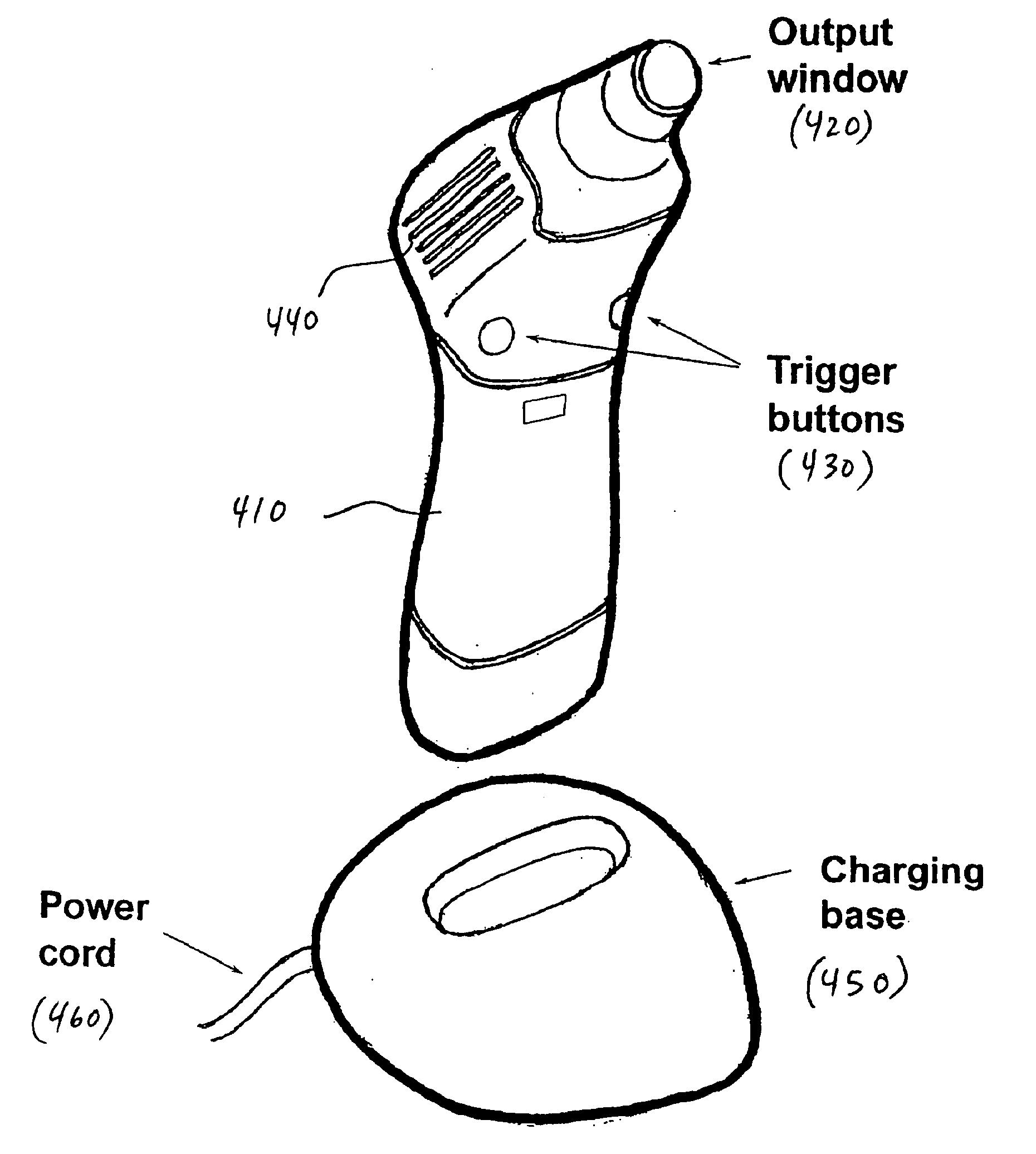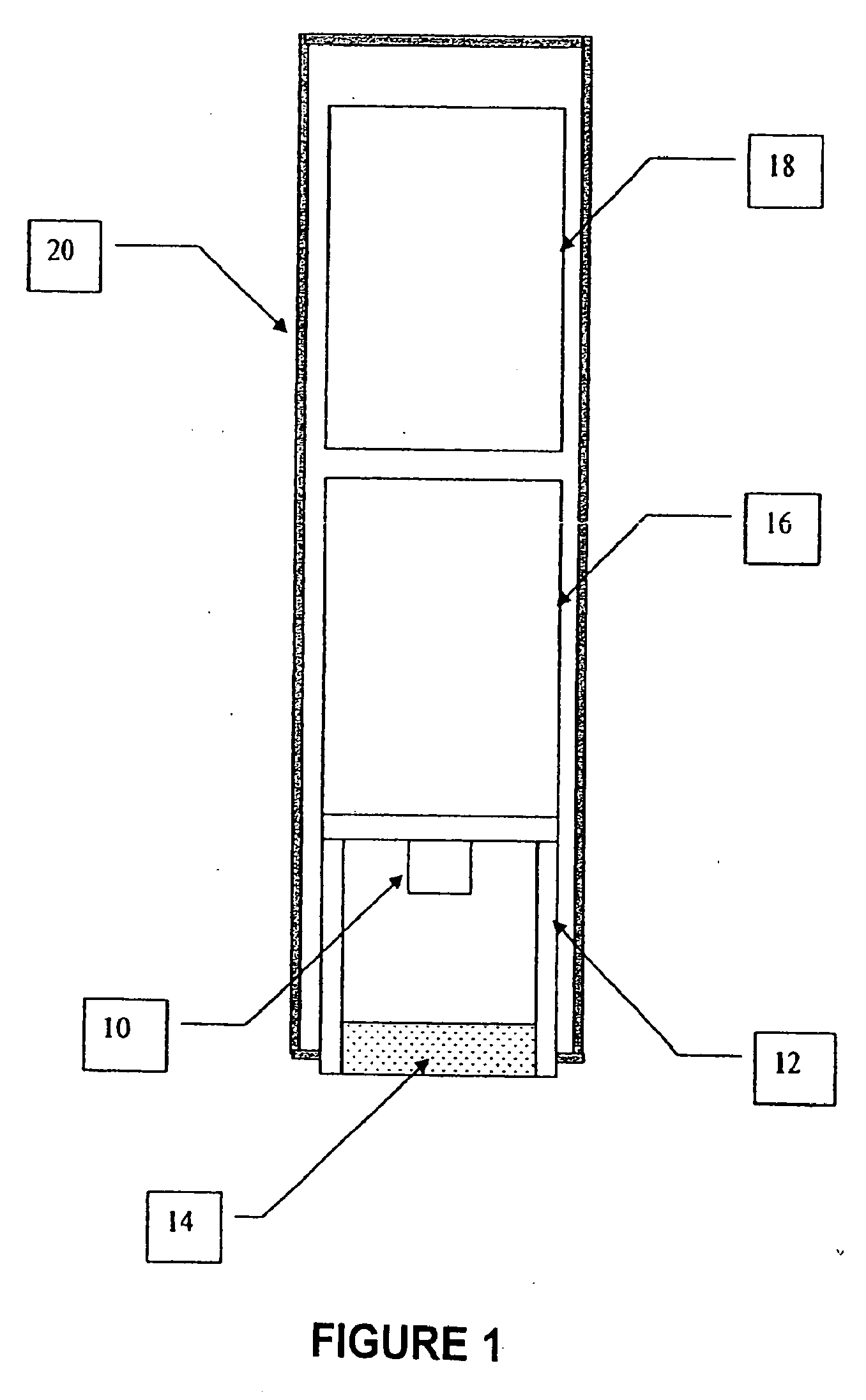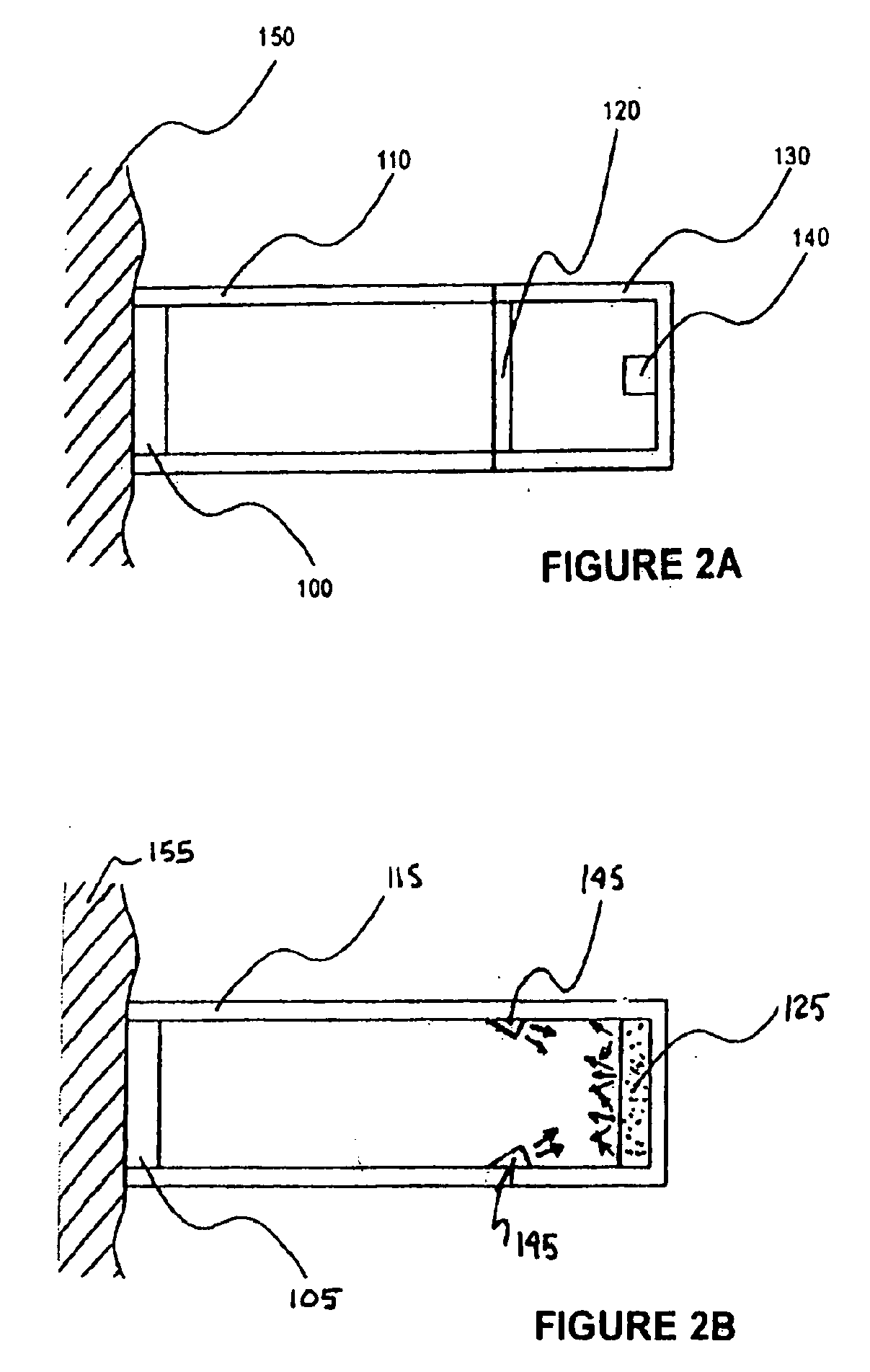Self-contained, eye-safe hair-regrowth-inhibition apparatus and method
a self-contained, eye-safe technology, applied in the field of hair regrowth inhibition apparatus and method, to achieve the effect of reducing or preventing epidermal injury
- Summary
- Abstract
- Description
- Claims
- Application Information
AI Technical Summary
Benefits of technology
Problems solved by technology
Method used
Image
Examples
first embodiment
[0071] A device and method are described in a first embodiment that enable light-based dermatologic treatment with a self-contained and handheld device. The device embodies an advantageous combination of a battery-powered electrical circuit design, a self-contained housing mechanical design, and a light source and optical design, that enables efficacious and practical dermatologic treatment in a cordless and handheld manner.
[0072] The light source may be, for example, one or more semiconductor laser diode bars that generate pulses of infrared light. To effect hair-regrowth inhibition, light from the device passes through the epidermis and is absorbed by melanin in the hair shaft and follicle. The resulting brief temperature rise of the follicle temporarily disables it, delaying the regrowth of hair. The device can be pulsed at a repetition rate of up to 0.5 Hz.
[0073] Effective dermatologic treatment, e.g., hair-regrowth inhibition, can occur with standard (10-40 J / cm2) output flue...
second and third embodiments
[0089] Alternative embodiments of a dermatologic treatment device and method incorporate an optical diffuser, described in detail below, to greatly enhance the eye safety of the device while minimally affecting efficacy. The addition of an optical diffuser to increase the divergence and to reduce the spatial coherence of the light emitted from the device allows the apparatus to be classified as a Class I Laser Device under the guidelines of the U.S. Food and Drug Administration Center for Devices and Radiological Health. This permits the use of the apparatus without having to wear laser safety glasses or goggles, and most importantly, eliminates the risk of eye injury if other safety means such as the contact sensor described above should fail.
[0090] Accordingly, a device and method for dermatologic treatment are provided in a second and third embodiment that are inherently eye-safe. That is, the device and method are effective in treating various dermatologic conditions (i.e. prod...
example 1
Visible, Coherent Source (e.g., Laser)
[0211] For a source of diameter d=1.13 cm, the angular subtense of the source varies depending on the distance r from the eye; however, because in this example the source is a laser in the visible region of the spectrum (in this example it is assumed that the laser is highly spatially coherent), both C4 and C6 are equal to 1, and the maximum permissible exposure at the cornea given by Equation 1 is:
MPE=1.8×10−3 t0.75C4C6=1.8×10−3(0.072)(1)(1)=1.3×10−4 J / cm2
or 130 microjoules per square centimeter. This fluence is of the order of 100,000 times lower than the fluence involved in the therapeutic dermatologic treatment of typical skin problems such as hair-regrowth inhibition. It is of course true that the fluence exiting the 1 cm2 laser aperture could be much higher than the 130 μJ / cm2 figure calculated above; for eye safety it is understood that only the fluence at the cornea, Fcornea, be no higher than this figure for the laser source in this...
PUM
 Login to View More
Login to View More Abstract
Description
Claims
Application Information
 Login to View More
Login to View More - R&D
- Intellectual Property
- Life Sciences
- Materials
- Tech Scout
- Unparalleled Data Quality
- Higher Quality Content
- 60% Fewer Hallucinations
Browse by: Latest US Patents, China's latest patents, Technical Efficacy Thesaurus, Application Domain, Technology Topic, Popular Technical Reports.
© 2025 PatSnap. All rights reserved.Legal|Privacy policy|Modern Slavery Act Transparency Statement|Sitemap|About US| Contact US: help@patsnap.com



